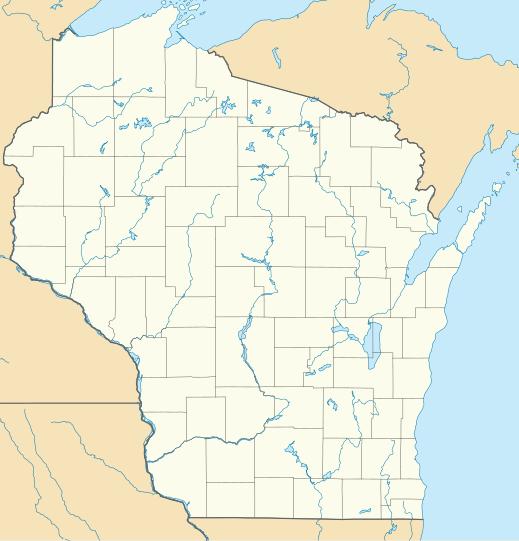

2025 Wisconsin Technical College Assessment Conference
February 28, 2025
Mid-State Technical College
Stevens Point Downtown Campus
Conference Sponsors:





2025 Wisconsin Technical College Assessment Conference
February 28, 2025
Mid-State Technical College
Stevens Point Downtown Campus
Conference Sponsors:


An Interactive Workshop combines information sharing with interactive components, allowing participants to engage directly with the material or each other.
This session will follow the dynamic and engaging Pecha Kucha style format, consisting of three concise, backto-back presentations, each lasting 10 minutes that explore innovative examples of effective assessment. The session will conclude with an interactive panel segment for audience questions, discussions, and brainstorming future implementation practices.
This interactive session encourages audience participation to crowd source solutions to specific problems. Presenters introduce a problem or challenge in 5-10 minutes. The remaining 35 minutes will involve audience discussion and collaborative problem-solving.
8:00 - 8:30

-
-
- 11:15
- 1:00
11:15 - 12:00 Workshop 2 Various Rooms 2:45 - 3:45 Solve My Problem Various Rooms 3:45 - 4:00 Closing and Door Prizes LEAD Center
-

8:45 - 9:45 a.m.
Generative AI tools have had an astonishingly quick impact on the ways we learn, work, think, and create. While higher education’s initial response was to develop strategies to diminish AI’s influence in the classroom, it is now clear that AI competencies and literacies must be embraced as essential learning for most colleges and universities. These responses and realities create a challenging tension that higher education must work to resolve. Drawing from his new book, Teaching with AI: A Practical Guide to a New Era of Human Learning (Johns Hopkins University Press, 2024), Dr. Watson will detail the challenges and opportunities that have emerged for higher education, especially in terms of pedagogical practice and student learning. The core focus of this keynote will be on concrete approaches and strategies higher education can adopt, both within the classroom and across larger curricular structures, to best prepare students for the life that awaits them after graduation. It will also detail the pedagogical possibilities regarding how AI can have a positive impact on student learning.
C. Edward Watson, Ph.D., is the Vice President for Digital Innovation at the American Association of Colleges and Universities (AAC&U). He is also the founding director of AAC&U’s Institute on AI, Pedagogy, and the Curriculum. Prior to joining AAC&U, Dr. Watson was the Director of the Center for Teaching and Learning at the University of Georgia (UGA) where he led university efforts associated with faculty development, TA development, learning technologies, and the Scholarship of Teaching and Learning. He continues to serve as a Fellow in the Louise McBee Institute of Higher Education at UGA and recently stepped down after more than a decade as the Executive Editor of the International Journal of Teaching and Learning in Higher Education. His most recent book is Teaching with AI: A Practical Guide to a New Era of Human Learning (Johns Hopkins University Press, 2024). Dr. Watson been quoted in the New York Times, Chronicle of Higher Education, Inside Higher Ed, Campus Technology, EdSurge, EdTech, Consumer Reports, UK Financial Times, and University Business Magazine and by the AP, CNN and NPR regarding current teaching and learning issues and trends in higher education.

10:00 - 10:45 a.m.
LEAD Center
Presenter: Dr. C. Edward Watson
Designed for those who are interested in employing AI within the context of their curriculum and/or courses, this hands-on workshop will begin by providing participants with a guided, hands-on exploration of key generative AI tools currently being used today.
The world of generative AI is not monolithic, as there are a variety of systems and each has different strengths and weaknesses. After exploring this landscape, the workshop will shift to specific applications of AI within teaching and learning settings. A key theme will be how faculty can ensure their students achieve the learning outcomes of their course while also engendering AI competencies and literacies that are of increasing demand in the world of work. Assignment design, feedback, and grading will be key topics.
A hallmark of this session will be opportunities for attendees to explore AI within the specific context of their own course. Relatedly, participants are encouraged to bring at least one assignment they plan to use in the fall semester or have recently used and would like to reconsider within the context of opportunities presented by AI.

Room: CER
Presenter: Desiah Melby, Mid-State Technical College
The integration of artificial intelligence (AI) into education presents both challenges and opportunities for assessment practices. This session will explore key considerations for designing and implementing assessments in the AI era, including maintaining academic integrity, fostering critical thinking, and leveraging AI tools ethically to enhance learning. Participants will engage in interactive discussions and activities to evaluate current assessment strategies and consider innovative, AIinformed approaches. Through large group presentation, small group discussions, and collaborative brainstorming, attendees will leave with actionable insights and best practices to adapt their assessments to a rapidly evolving technological landscape.
Room: LEAD Center
Presenter: Dina Borysenko, Milwaukee Area Technical College
This presentation focuses on the evolution of institutional learning outcomes assessment at Milwaukee Area Technical College (MATC), particularly on embedding soft skills into curricula and teaching practices. The presentation will detail MATC’s four-year journey to enhance instruction of soft skills, including overcoming initial faculty resistance
11:15 a.m.- 12:00 p.m.
Various Rooms
and implementing an updated assessment framework. The goals are to provide actionable insights on integrating soft skills into technical programs, strategies for engaging faculty, and using a structured approach to improve institutional learning outcomes. Attendees will gain a deep understanding of practical steps for intentional and impactful teaching and assessment of employment skills.
Room: 212
This workshop introduces Perusall, an innovative annotation application that revolutionizes student interaction with course materials and with each other. Perusall is a cost-effective tool that enables students to leave comments and questions on various artifacts, including videos, PDFs, podcasts, and web-pages, fostering dynamic peer conversations. Unlike traditional discussion boards, Perusall does not rely on specific prompts, allowing students greater freedom to engage with the material in their own way. This formative assessment tool encourages collaborative exploration of thoughts and ideas before progressing to summative assessments. Participants in the workshop will learn how to leverage Perusall to enhance student preparation, class discussions, and critical thinking. By the end of the session, attendees will have hands-on experience with Perusall and gain practical strategies for integrating it into their teaching. The workshop will cover diverse applications of the platform, from annotating textbook sections to engaging with news articles, making learning more interactive and meaningful for students.

Room: 417
Presenters: Tessa Campbell, WIDS & Lynn Neitzel, WIDS
Program assessment isn’t just about compliance—it’s a powerful tool to enhance teaching and learning. In this session, discover how to leverage TSA and program assessment data to inform instructional strategies, improve student outcomes, and foster a culture of excellence. Explore practical methods to connect program outcomes with actionable insights, aligning assessment results with faculty development and curriculum improvement. Leave with a roadmap for using program assessment to drive meaningful change in your institution.
Room: 217
Presenter: Alisa Schley, Chippewa Valley Technical College
Colleges have increasingly recognized the integral role of co-curricular activities in fostering student growth. Leadership development is often a key component of these activities, yet assessing it remains a challenge. CVTC had developed a framework for assessing leadership skills as they relate to our Core Abilities and measuring the impact of co-curricular experiences on students’ personal and professional growth. In this session, attendees will learn about our journey in assessing the effectiveness of co-
curricular student organizations, including the tools and strategies we’ve used to gather meaningful data. There will also be an opportunity for others to share their best practices and challenges of co-curricular assessment.
Room: 321
Presenter: Elizabeth Jones & Lisa Steffens, Fox Valley Technical College
Promoting faculty collaboration on teaching improvements is essential for student success and accreditation compliance. In this interactive session, FVTC will share how our college used the Goals/ Alignments tool in Blackboard to guide faculty through the final stages of the assessment cycle: analyzing data and applying insights to improve teaching and learning. We’ll describe the successes and challenges of each step: training faculty to digitally link assessments to learning goals, running outcome reports, and hosting a collaborative “close the loop” discussion gathering during which program and discipline teaching teams developed improvement plans. We will also share the materials generated for the project (e.g., training materials, forms, discussion guidelines, communication plans, etc.). Through interactive discussions, attendees will learn how the process sparked meaningful conversations, generated valuable evidence for accreditation, and empowered faculty to transform data into actionable strategies.

1:00 - 2:15 p.m.
Presenter: Dr. Beth Ellie, Mid-State Technical College
DiscoverhowMid-StateTechnicalCollege’scommitment to a comprehensive 5-year assessment plan led to measurable improvements in student satisfaction. This fast-paced session will highlight how intentional, transparent assessment strategies provide upfront expectationsforstudents.Gaininsightsintothepowerof structuredassessmentinenhancingstudentexperiences andoutcomes.
Presenters: Dean Ellen Mathein, & Dr. Steve Wallace, Nicolet College
Our goal is to share our journey of building effective program assessment practices that lead to meaningful improvementsinstudentlearning,streamlineassessment processes, and foster a culture of collaboration and strategic decision-making among faculty and staff. Join us as we take you on the School of Business and Entrepreneurship’s journey to develop innovative, impactful assessment practices. This fast-paced, visual presentation will explore how we identified our starting point, collaborated across roles, and built a solid
foundation for sustainable program assessment. We’ll highlight the incremental steps we took, our focus on strategic program outcomes, and the adjustments we made to ensure success. The results? Meaningful changes in student learning, faculty engagement, and program effectiveness. Whether you’re just beginning or looking to refine your own assessment practices, our lessons learned and bright outlook will inspire new possibilities for your institution.
Presenter: Dr. Carrie Jarosinski, Mid-State Technical College
As learning continues to evolve, educators are tasked with rethinking traditional assessment methods to better support student learning in both face-to-face and virtual classroom environments. This session will explore innovative assessment strategies designed to engage students, promote critical thinking, personalize content, increase student autonomy, and foster the development of employability skills in courses. By showcasing a “choose your own adventure” approach to classroom assessment, participants will discover how to implement flexible and dynamic assessments that align with the unique demands of ever evolving education landscape and to support the professional skills needed for our students to flourish after long after graduation.

Room: CER
Presenter: Lea Ann Turner, Mid-State Technical College
In an era where artificial intelligence tools are increasingly integrated into writing processes, how can educators fairly and effectively assess student work without relying on AI detection software? This interactive workshop begins with a brief case study on a university lawsuit involving AI detection software and student expulsions. Participants will engage in collaborative problem-solving to develop practical, human-centered strategies for assessing writing that uphold academic integrity while fostering trust and fairness in the classroom. Join us to explore innovative solutions for navigating the challenges of AI in education.
Room: 212
Presenter: Dr. Steve Wallace, Nicolet College
Institutional and program assessment is challenging to implement, sustain, and improve. It is high stakes, involves layers of stakeholders, yet when done well, can be very rewarding. The challenge (i.e., problem) is that
2:45 - 3:45 p.m. Various Rooms
there is no script or recipe to follow for success. Despite that, there is plenty of collective experience and wisdom throughout the WTCS colleges on what makes for good assessment practices. This session seeks a solution with a proposal to come together as assessment professionals; to meet regularly to raise timely topics; pose questions; and share the good, the bad, and the ugly..
Room: 417
How do we make formative assessment meaningful and effective across in-person, online, and hybrid learning spaces? In this interactive session, presenters will set the stage with a key challenge, then turn to you—the audience—to help crack the code. Through collaborative brainstorming and crowdsourced solutions, we’ll generate fresh ideas and actionable strategies to elevate assessment practices. Walk away inspired and equipped with innovative approaches to tackle assessment challenges in any modality.
During the break, talk with your technical college collegues to learn more about their assessment strategies. Use the stickers to keep track of the colleges you connected with.


In 2020, this college’s women’s basketball team achieved the remarkable feat of winning the NJCAA Division III National Championship.
This college has a new mascot, a river otter named Ollie.
This college operates two PBS stations. 1 2 3 4 5 6 7 8 9 10 11 12 13 14 15 16
This Technical College district covers over 10,500 square miles.
This college has a newly constructed bridge on campus that lights up.
Which Technical College has 3,000 feet of lake front property?
This college included a “Wood Technology Center of Excellence” facility.
This college has a new robotic dog that roams the campus and helps with recruiting.
This college installed solar thermal and photovoltaic energy sources at one of their regional centers.
This college has a new Scenario City Complex for public safety training.
This campus is recognized as a “Tree Campus” Institution.
This college was the first funded technical college in Wisconsin and in America when it started offering classes in 1911.
This college owns a racetrack. (Technically, a former racetrack)
This college puts out a magazine called NEXT celebrating impactful stories about students, faculty and their communities.
This college has a student success program that helps students identify financial gaps and receive the resources they need to graduate on time.
This college has a new AI Applied Lab.
